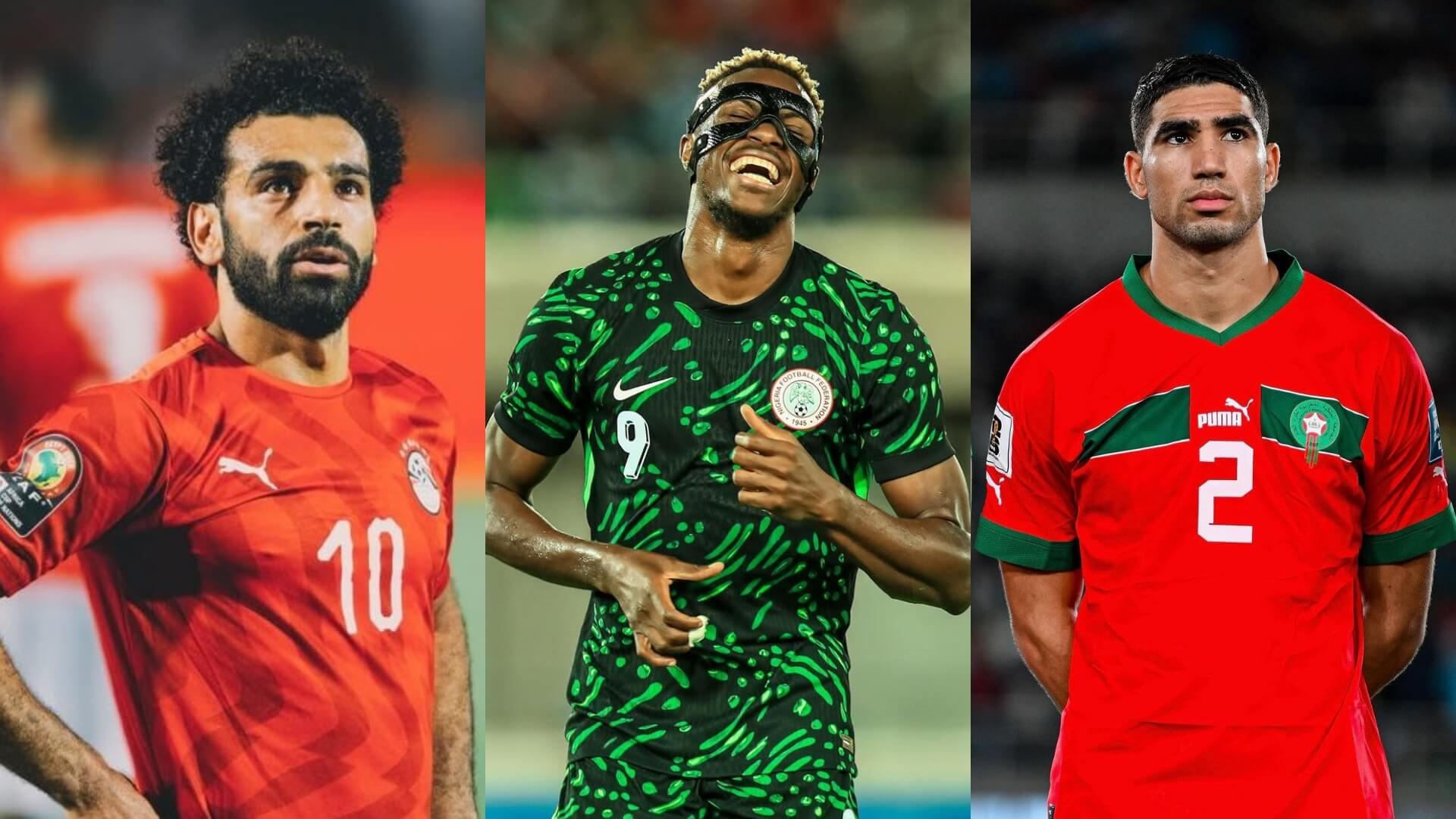The continent's football powerhouses are locked in decisive battles that could define their international futures, with Morocco and Egypt leading the charge while traditional giants like Nigeria face unprecedented pressure.
Africa's pursuit of 2026 FIFA World Cup representation has reached a pivotal moment, with nine direct qualification spots and one intercontinental playoff position creating unprecedented drama across the continent. As qualifying enters its decisive phase with just four rounds remaining, traditional powerhouses face potential elimination while emerging nations chase historic debuts.
Morocco and Egypt Leading the Charge
Morocco stands on the brink of becoming the first African nation to secure qualification. The Atlas Lions boast a perfect record with 15 points from five matches in Group E, needing just one point from their remaining fixtures against Niger and Zambia to cement their place at the expanded 48-team tournament.
Egypt has similarly positioned itself for early qualification, leading Group A with 16 points and a commanding five-point advantage over Burkina Faso. The Pharaohs' path to their third World Cup appearance appears increasingly clear, with Mohamed Salah's leadership proving pivotal in their campaign.
Nigeria's Shocking Decline
The most dramatic storyline involves Nigeria's precipitous fall from grace. The three-time African champions currently sit fourth in Group C with just seven points from six matches, a staggering six points behind leaders South Africa.
Under new coach Eric Chelle, the Super Eagles face must-win matches against Rwanda and South Africa to avoid missing consecutive World Cup finals. "We believe, so if you guys can also believe in us and give us the energy we need, we can achieve our goal of going to the World Cup," pleaded midfielder Alex Iwobi.
Nigeria's crisis stems from persistent instability, having employed three different coaches across six qualifying matches. José Peseiro began the campaign with just two points from two matches, followed by Finidi George who collected one point from two fixtures, before current coach Eric Chelle steadied things with four points from his opening two games.
South Africa's Controversial Position
South Africa currently tops Group C with 13 points, but their position remains shrouded in controversy. FIFA is reviewing their 2-0 victory over Lesotho from March, where midfielder Teboho Mokoena allegedly played while suspended after receiving two yellow cards in earlier matches.
The South African Football Association admitted the error but argued that since Lesotho didn't lodge a formal protest at the time, the result should stand. However, FIFA's disciplinary code allows the governing body to act independently, and it has previously stripped teams of points for similar offenses.
Should the result be overturned, South Africa would lose three points and face a 3-0 defeat, dramatically reshaping Group C standings and potentially breathing life into Nigeria's faltering campaign.
Emerging Nations Seize Historic Opportunities
Cape Verde leads one of the tournament's most compelling stories. The Blue Sharks top Group D with 16 points, one point ahead of eight-time World Cup participants Cameroon. Their head-to-head meeting on September 9th could determine which nation advances to North America.
Sudan, despite ongoing domestic conflict, remarkably leads Group B and pursues their first-ever World Cup qualification. Their journey epitomizes the tournament's power to transcend political and social challenges.
Traditional Powers Under Pressure
Several African football giants find themselves in precarious positions:
- Ghana, despite leading Group I with 15 points, suffered a setback with a late 1-1 draw against Chad that dented their perfect record
- Senegal, the reigning AFCON champions, trails DR Congo by one point in Group B
- Algeria maintains a three-point cushion over Mozambique in Group G, but cannot afford complacency
- Ivory Coast, despite being the current AFCON holders, faces a tight battle with Gabon in Group F, separated by just one point
Expanded Format Creates New Pathways
The 2026 World Cup's expansion to 48 teams has provided Africa with unprecedented representation, increasing from five to nine guaranteed qualification spots plus a potential tenth through intercontinental playoffs. This expansion has intensified competition while giving smaller nations realistic hopes of reaching football's biggest stage.
The four best runners-up will advance to the playoffs in November, providing additional pathways to qualification. This format ensures that Africa's World Cup representation could potentially reach ten teams, the continent's largest-ever contingent.
Critical September Window Shapes Destinies
The September 3-9 international window features several matches that could determine qualification fates. Morocco's fixtures offer the Atlas Lions chances to seal their spot, while Egypt faces Ethiopia and Burkina Faso with qualification within reach.
For Nigeria, the stakes couldn't be higher. Their September 6th clash with Rwanda at the Godswill Akpabio Stadium represents a crossroads moment. Failure to win would leave their World Cup dreams hanging by the thinnest of threads.
Continental Renaissance Under CAF Leadership
The qualification campaign unfolds against unprecedented financial growth in African football. Under CAF President Patrice Motsepe's leadership, the confederation achieved record-breaking profits, with AFCON 2023 generating $72 million compared to just $4 million in 2021. This financial stability has enhanced competition quality and provided greater support for member associations.
Looking Toward History
As October's final qualifying phase approaches, Africa stands poised for its most competitive World Cup contingent in history. Morocco's semi-final run in Qatar 2022 shattered barriers and demonstrated the continent's potential. With nine or potentially ten teams qualifying, African football could field its most impactful World Cup representation ever.
The battles raging across qualification groups reflect deeper narratives about African football's evolution - traditional powers facing existential challenges while emerging nations chase historic achievements. This dynamic tension encapsulates the continent's footballing transformation and sets the stage for compelling drama through October's decisive conclusion.
Leave a comment
Your email address will not be published. Required fields are marked *





